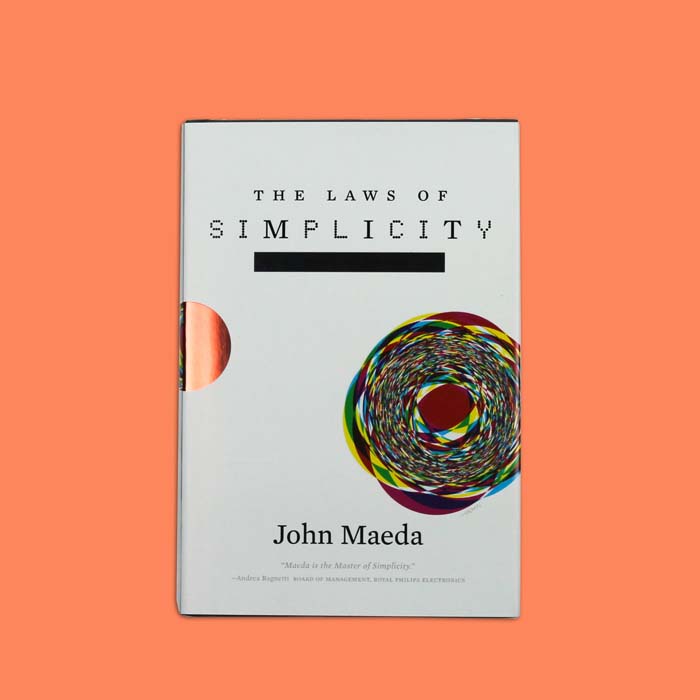The Laws Of Simplicity
$18.00
Finally, we are learning that simplicity equals sanity. We’re rebelling against technology that’s too complicated, DVD players with too many menus, and software accompanied by 75-megabyte “read me” manuals. The iPod’s clean gadgetry has made simplicity hip. But sometimes we find ourselves caught up in the simplicity paradox: we want something that’s simple and easy to use, but also does all the complex things we might ever want it to do. In The Laws of Simplicity, John Maeda offers ten laws for balancing simplicity and complexity in business, technology, and design — guidelines for needing less and actually getting more.
Maeda explores the question of how we can redefine the notion of “improved” so that it doesn’t always mean something more, something added on.
Maeda’s first law of simplicity is reduce. It’s not necessarily beneficial to add technology features just because we can. And the features that we do have must be organized (Law 2) in a sensible hierarchy so users aren’t distracted by features and functions they don’t need. But simplicity is not less just for the sake of less. Skip ahead to Law 9: “failure: Some things can never be made simple.” Maeda’s concise guide to simplicity in the digital age shows us how this idea can be a cornerstone of organizations and their products — how it can drive both business and technology. We can learn to simplify without sacrificing comfort and meaning, and we can achieve the balance described in Law 10. This law, which Maeda calls “the one,” tells us: “Simplicity is about subtracting the obvious, and adding the meaningful.”
Graphic designer, visual artist, and computer scientist John Maeda is President of the Rhode Island School of Design and founder of the SIMPLICITY Consortium at the MIT Media Lab. His work has been exhibited in Tokyo, New York, London, and Paris and is in the permanent collections of the Smithsonian Institution’s Cooper-Hewitt National Design Museum, the San Francisco Museum of Modern Art, and the Museum of Modern Art in New York City. He is the recipient of many awards, including the Smithsonian Institution National Design Award in the United States, the Raymond Loewy Foundation Prize in Germany, and the Mainichi Design Prize in Japan.


